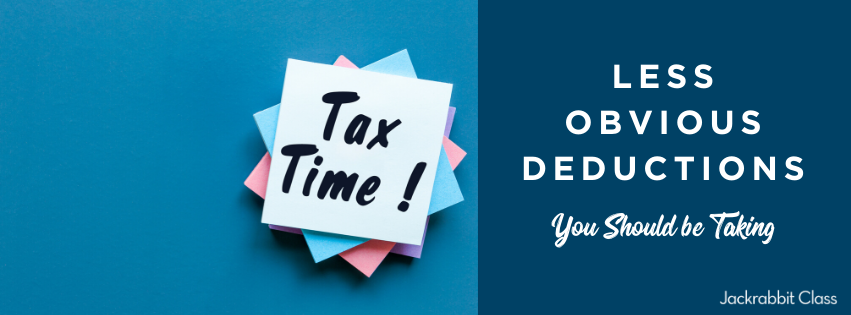Opening a gymnastics gym – like starting any other business – can be overwhelming.
There are so many business details such as upfront costs, competitors and capturing the market’s attention – and that’s just for starters. You have to be creative enough to find ways to grow AND to watch every expenditure. And then there are business taxes to deal with!
Gymnastics gym taxes can be complicated
As the owner of a gymnastics gym, you probably feel that you have better things to do with your time than organize tax details like:
- hire new instructors to accommodate your growing class schedule and student base,
- develop new curriculum for those students that you love to teach, and
- identify efficiencies that will lower costs and increase revenue!
But ignoring your taxes can cost you – especially if you’re unsure of which tax deductions you’re eligible for. Some great resources are out there (Dave Ramsey’s Small Business Taxes 101, for example). You don’t want to miss out on anything that will lower the hit you take on taxes or make mistakes that will capture the attention of the IRS.
Deducting the ‘ordinary and necessary’ for gymnastics gyms
You don’t have a master list of tax deductions that work for every profession that can be a small business, but there is a general rule of thumb for small business owners like those who own gymnastics gyms to draw guidance from. It’s called the “ordinary and necessary” rule. Surprisingly enough, it means exactly what it says. An expense is ordinary if it is common and accepted in your industry and it’s necessary if it is helpful and appropriate for your business. So if an expense fits both of these statements, it is a tax-deductible expense.
That opens a wide berth for ambiguity – and mistakes – so be meticulous.
Under the ‘new’ tax law, most small businesses (sole proprietorships, LLCs, C corporations and partnerships which many gymnastics gyms are) can deduct 20% of their income on taxes so if you own a gym that generates $100,000 in profit in 2019, as a simple example, you can deduct $20,000 before ordinary income tax rates are applied.
What are tax deductions for gymnastics gyms?
The IRS allows you to deduct $5,000 in both startup and organizational costs as long as the costs are below $50,000. Exceeding this amount ($50,000) means the IRS will deduct the difference between $5,000 and the amount above $50,000. (In other words, if you spend $52,000, you can only deduct $3,000 instead of the full $5,000.) If you end up exceeding $55,000, you must amortize the costs or your deductions will be lost entirely.
Even if your costs stay below $50,000, you can still opt to amortize over 15 years and take the same deduction each year. Make a note to yourself that this is an especially good option if you don’t expect to be lucrative in the first year and want to lower your taxes when you do become profitable.
See what we mean? Even something simple sounds complicated!
Tax deductions for gymnastics gyms to take advantage of
Hold onto your hat! There are quite a few tax write-offs you can consider that may be surprising to you. We’re going to cover 5 for you here. Each one is fully tax-deductible.
1. Bank Fees and Charges
If you have separate business accounts and credit cards, you can deduct charges relating to transfer fees, overdraft fees, transaction fees, and annual service fees – only for business accounts and cards.
How do you know if you qualify?
If these fees are not deemed excessive by the IRS.
Special note: Bank fees are different than fees you pay to a third party you use to process your payments (i.e. stripe, square, paypal, etc), while these costs are also deductible they would be considered merchant or transaction fees.
2. Machinery and Equipment Rental
If you rent equipment that’s vital to the operation of your business, you can claim a deduction for the entire cost.
How do you know if you qualify?
If your rental expenses relate to your type of business and are necessary for you to operate.
3. Tools
You’ll be happy to know that the IRS differentiates between equipment and tools. Tools — such as cooking pans or pliers — that have an estimated life of one year or less are deductible expenses. Anything over a year is considered a long-term asset and must be depreciated.
How do you know if you qualify?
If the tool is necessary to the operation of your business.
If the tool has an estimated life of one year or less.
4. Freelance/Contractor Labor
If you hired a freelancer/independent contractor, you may be able to fully deduct those pay-outs. This includes costs from hiring a painter to paint your office to freelancers designing your website.
How do you know if you qualify?
If you fill out Form 1099-MISC when you paid out $600 or more.
5. Inventory
If you’re a service-based small business, you may be able to treat some inventory as non-incidental material or supplies. This can get a little tricky so strictly watch accounting rules, and “supplies” you sell can become deductible.
How do you know if you qualify?
If you use the cash method of accounting,
If you keep track of costs to acquire/produce the supplies,
If you only deduct the cost in the year you sell the supplies rather than deducting in the year you acquired/produced them.
Focus on details when organizing information for taxes
According to the IRS you MUST have the following on hand for every expense:
- the amount,
- the date the purchase was made,
- where you purchased the expense,
- what form of payment you used,
- the reason for the expense (i.e., its connection to your business), and
- who was involved (this includes both your employees and any clients present) for meals and entertainment expenses
Organize these details in the way that works best for you, i.e., notes on the side of your receipt before you snap a photo of it or enter them into an Excel spreadsheet. In case of an audit, the IRS has the right to ask for these details to ensure that each expense falls within their guidelines.
Tax deductions are opportunities to reduce taxable income
It takes a little time to learn how the tax code impacts your industry and your business so you can get the best possible tax outcome. Hiring a Certified Public Accountant is a wise investment – even if you’re well-versed in which tax deductions affect you. A CPA knows all the details so your potential for getting the most deductions rises and the possibility of mistakes (and the dreaded audit) is practically eliminated —as their knowledge could net you additional savings.
Keep more of what you’ve earned
Small business tax deductions help you keep capital in your business so you can continue investing in your vision, people and customers. While taxes are used for a variety of things across federal, state and local municipalities, it’s important for you to keep an eye on every dollar that comes in and out of your business.
Jackrabbit’s cloud-based class management software helps you organize and access your gymnastics gym information during tax time. But, being a tax info resource is just one of the ways Jackrabbit adds value! We can help your gymnastics gym operate like a well-oiled machine!
Ready for my live demo!




